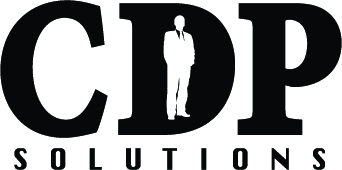Blog
Understanding Lean Manufacturing Principles in the Metals Industry

Understanding Lean Manufacturing Principles in the Metals Industry
Lean manufacturing has become an essential approach for the metals industry, driving efficiencies and reducing waste throughout the production process. As an industry that relies on complex operations and precise execution, implementing lean principles can significantly enhance productivity, cost-effectiveness, and overall competitiveness.
1. Efficient Raw Material Sourcing and Inventory Management
One of the primary goals of lean manufacturing is to eliminate waste by minimizing inventory levels and ensuring efficient raw material sourcing. In the metals industry, where raw materials such as alloy, aluminum, steel, and titanium are crucial, optimizing the sourcing and inventory management process can lead to significant cost savings and enhanced production efficiency.
For example, a metal fabrication company implemented lean principles by establishing strategic partnerships with key suppliers. By working closely with their suppliers to improve communication and streamline the ordering process, the company reduced lead times and minimized stockouts. This approach not only saved the company time and money but also enhanced customer satisfaction by ensuring timely delivery of products.
2. Streamlined Manufacturing Operations
In the highly competitive metals industry, optimizing manufacturing operations is essential for maintaining a competitive edge. Lean manufacturing principles can help organizations identify and eliminate bottlenecks, reduce downtime, and increase overall production capacity.
One effective strategy is the implementation of standardized work procedures. By defining and documenting standard work procedures, employees can perform their tasks consistently, reducing variations and increasing productivity. For instance, a steel manufacturing company implemented standardized work procedures for their production line, resulting in a significant reduction in defects and rework, as well as improved throughput.
3. Continuous Improvement Culture
Continuous improvement is at the core of lean manufacturing principles. Encouraging a culture of continuous improvement within an organization empowers employees at all levels to identify and implement solutions that enhance efficiency and drive overall improvement.
To foster a culture of continuous improvement, organizations can utilize techniques such as Kaizen events. Kaizen, which means “change for the better” in Japanese, involves gathering a cross-functional team to identify and implement incremental improvements in specific areas of the production process. These events help drive employee engagement, generate innovative ideas, and promote a culture of collaboration and problem-solving.
A metal casting company successfully implemented Kaizen events to improve their casting process. Through the involvement of their frontline employees, they identified and implemented several process improvements that greatly enhanced efficiency, reduced defects, and shortened lead times.
4. Effective Quality Control
Quality control is of utmost importance in the metals industry to ensure that products meet customer specifications and regulatory requirements. Lean manufacturing principles can be leveraged to optimize quality control processes and reduce the occurrence of defects and non-conformities.
One approach is the implementation of mistake-proofing techniques, also known as poka-yoke. Poka-yoke devices or mechanisms are put in place to prevent errors from occurring or detect them before they result in defects. For example, a sheet metal manufacturing company incorporated poka-yoke devices in their press machines to ensure accurate bending angles, resulting in a significant reduction in defects and rework.
5. Supply Chain Optimization
Effective supply chain management is crucial for metals industry organizations to ensure timely delivery of materials and minimize disruptions. Lean manufacturing principles can be applied to optimize supply chain processes and enhance overall performance.
One strategy is to establish collaborative partnerships with key suppliers. By working closely with suppliers and sharing information on production schedules and demand forecasts, organizations can enhance supply chain visibility and reduce lead times. This approach can help mitigate the risk of supply chain disruptions and improve overall operational efficiency.
A metal fabrication company implemented a collaborative supply chain approach by forming long-term partnerships with their key suppliers. By sharing demand forecasts and providing early visibility into production schedules, the company was able to optimize inventory levels, reduce lead times, and improve overall supply chain performance.
Conclusion
Lean manufacturing principles have revolutionized the metals industry, offering organizations the opportunity to optimize various stages of the production process, reduce waste, and enhance overall competitiveness. By implementing strategies such as efficient raw material sourcing and inventory management, streamlined manufacturing operations, a culture of continuous improvement, effective quality control, and supply chain optimization, organizations can achieve significant improvements in productivity, cost-effectiveness, and customer satisfaction.
Real-world examples and case studies highlight the effectiveness of these strategies in the metals industry, showcasing the transformative power of lean principles. By adopting these principles, industry professionals can unlock new opportunities for operational excellence and thrive in an increasingly competitive market. With the right implementation of lean manufacturing principles, organizations in the metals industry can revolutionize their operations, drive efficiency, and achieve greater success.
At CDP Solutions, we understand the transformative power of lean principles in the metals industry. As a leading recruiting and search firm specializing in the manufacturing industry, we can help companies find top talent that is knowledgeable in lean manufacturing and can drive operational excellence. Our extensive network and industry expertise enable us to find the best fit for each position, ensuring our clients receive unmatched service.
